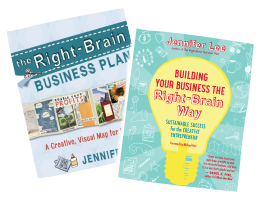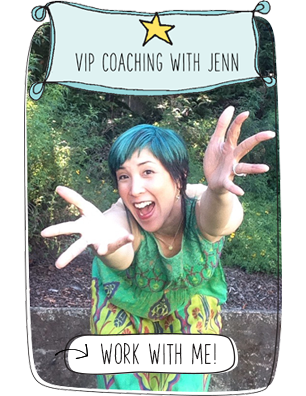
Guest post by Cass Mullane, Entrepreneur Coach, Right-Brain Business Plan® Licensed Facilitator, Prosper Creatively, LLC
Recently I had a friend who got smoked on some custom work. He came by the job through a colleague and because, coincidentally, he knew the customer. He did a significant amount of high-quality work that went beyond what the customer asked for and he delivered early. Now he’s chasing payment and his trust has been decimated. Why? Everything was arranged verbally and it was never reduced to writing.
On the flip side, one of my clients found herself in a tough spot because she had signed a rental agreement for a venue and did not actually read and understand exactly what she was signing. She also did not verify that the boxes checked and the numbers written in on the agreement accurately reflected what had been discussed. Then she had to go through an extra layer of difficulty because the person she had negotiated with left the company and the new person was not as accommodating.
Whether you’re arranging custom work or a commission, signing a lease or a purchase order or entering into a gallery exhibition contract, you need to make sure that the terms you agree to are accurately reflected in the written document. Obviously what follows is not legal advice, as I’m not a lawyer. Be sure to have a competent legal professional on your team to create and to review these types of documents.
Regarding commissions and events like retreats, please, please, please get those terms written down and always take a 30-50% deposit. Spelling out the terms sets clear expectations on both ends. Each of you knows what it is you’re agreeing to, how it’s supposed to be delivered, what changes can occur, when delivery is supposed to occur, and how much is going to be paid and by when.
As for deposits, I recommend that you consider making it a non-refundable deposit for a couple of reasons. First, it establishes that both parties are committed to the project and have skin in the game. Second, you’re going to do the work and expend funds, right? So you should be compensated for it. Third, it’s what professionals do. Would you balk if a lawyer asked for a retainer? No. You’re also a professional, so don’t balk in asking for a deposit.
When you’re getting ready to enter into an agreement prepared by someone else, like a lease or purchase order or another contract, you should always feel comfortable reading the agreement thoroughly before you sign it. Take your time and ask for clarification on things that you may not fully understand and sleep on it if you need to. After all, the moment you sign on the dotted line, you are locked into the terms. Remember that you can always walk away if you feel it’s not right… you are in charge of the pen.
One of the obvious benefits of carefully reading your agreement is that you can make corrections on the spot. Simple mistakes happen and it’s up to you to protect yourself.
Another benefit is you often have room for negotiation if the terms are not how you’d like them. If something feels wrong, clarify it. If you agreed to a specific number or date or deliverable, make sure it’s in there. If you find clauses that were not mentioned, discuss them. Oh, and just because someone says “it’s boilerplate” does not mean you don’t read it. Boilerplate becomes legally binding once you put ink on the page.
Obviously, it would be great if everyone had a lawyer in their pocket who could whip up agreements and review documents at a moment’s notice, but the reality is you’re often doing negotiations on the fly. When you do, you need to capture the essential elements of the agreement in writing and both you and the customer need to sign and date the document. Ideally, you’ll have that draft turned into a legal document prepared by a lawyer so it’s done properly and protects both parties.
©2019 Cass Mullane – All rights reserved
Like many great innovators, Cass Mullane has the unique combination of being a strong creative as well as a strategic thinking MBA. After departing the corporate world in 2004, Cass built a thriving business and personal coaching practice that focuses on accountability and specializes in solid business skills for right-brainers and creatives. Tapping into this whole brain approach has helped to make Cass a highly valued coach with an international clientele.
Cass’ new #1 International Bestseller, The Cool Stuff Jar: Three Simple Ways to Live a Happier Life, is now out on Kindle! Keep tabs on the book launch and all the fun following the launch by visiting www.coolstuffjar.com and entering your email. You can also follow Cass on Facebook!









